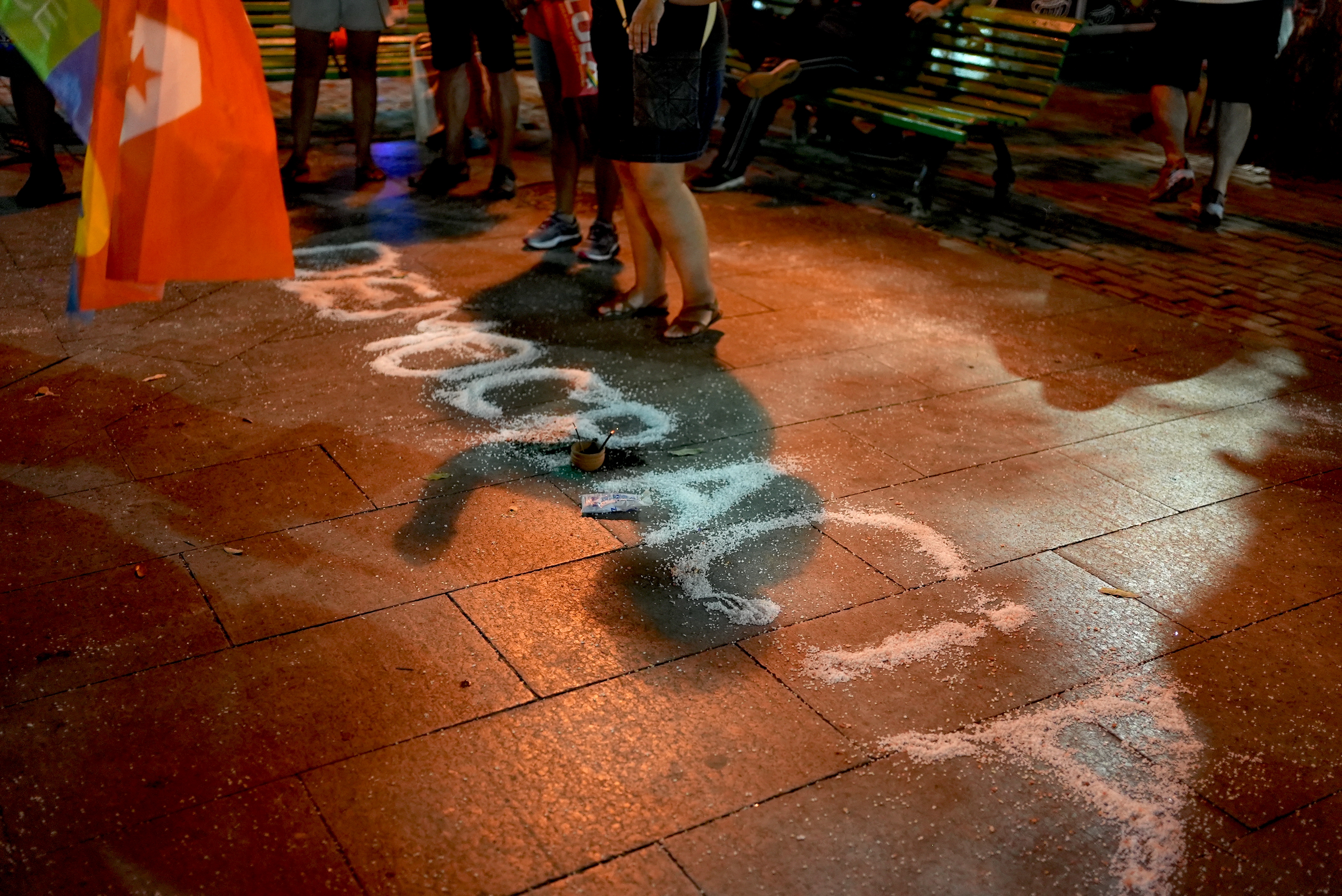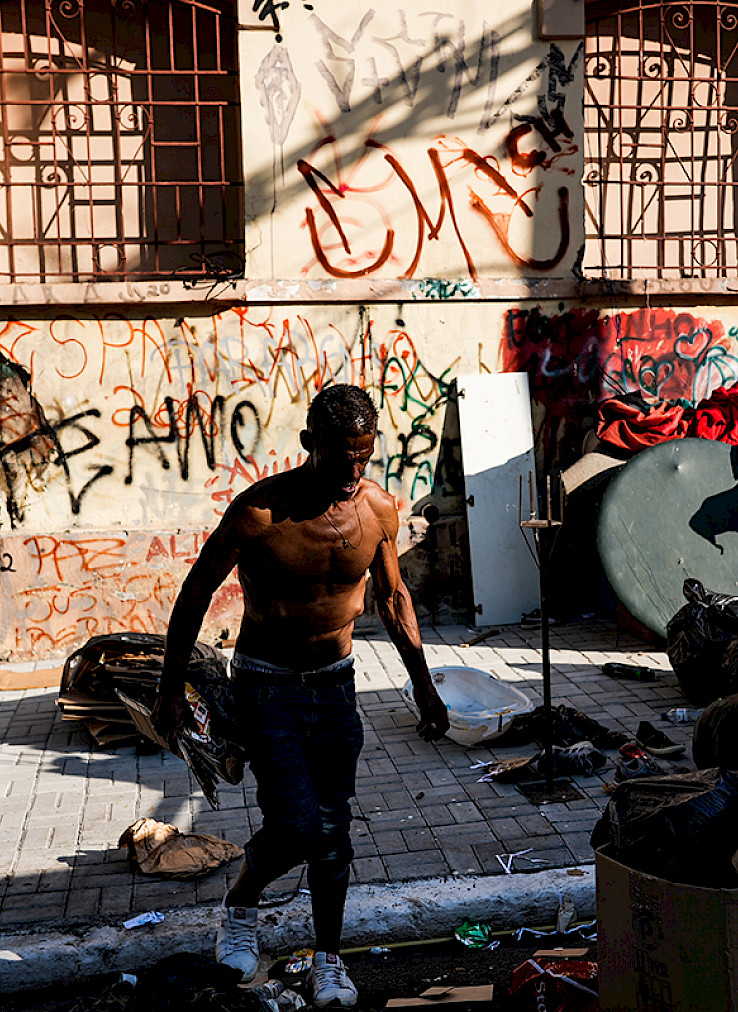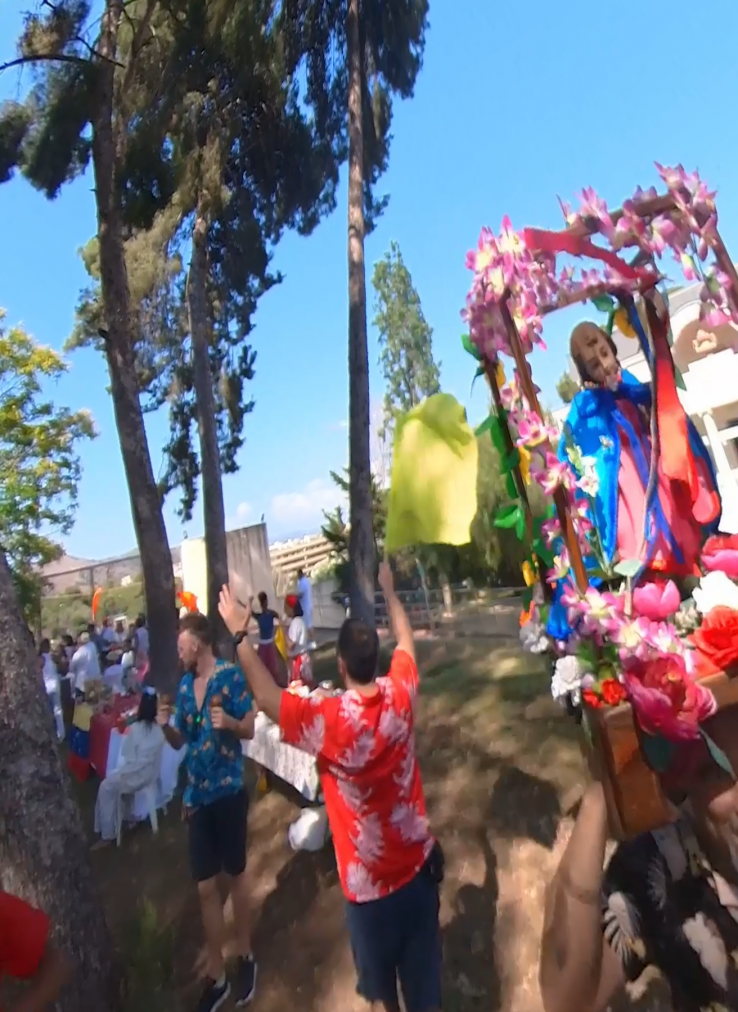Sal Grosso from Visual Trust on Vimeo
The Meriam Webster dictionary defines “apotropaic” as the action to turn away, turn aside or avert from evil . Apotropaic gestures, material signs or rituals are being performed all across the world taking various forms. These practices often lie in a liminal area of hegemonic religious beliefs or mere superstitions. Apotropaic performances and practices often manifest between the “sacred” and the “profane”, finding ground in materiality and gestures of everyday life. The sign of the cross or walking backwards when seeing a black cat are apotropaic gestures meant to protect from evil. Sometimes people perform them even when not fully believing in them.
In Brazil, the October 2022 presidential elections was a moment of intense political polarization. In the days before the elections many opposing groups took the streets and public squares of Rio de Janeiro in order to manifest support for their preferred candidate. The climate was by no means light. Jair Bolsonaro´s team already named the campaign a “spiritual war”, a fight of “good” against the “evil”. On the other hand, many left-wing supporters of Ignacio Lula da Silva perceive Bolsonaro as “pure evil” referring him as “The Genocide”. In this sense apotropaic gestures, performances, songs, memes, devices also part of fake news and disinformation were used by both sides in order to make it clear that they are fighting and protecting themselves against evil.
In Rio de Janeiro´s Flamengo neighborhood the San Salvador square is a leftist stronghold. Lula´s supporters used to gather here in the days before the elections. The square was occupied by Worker´s Party (PT) red flags. Images of LULA, t-shirts with political slogans and restless chanting were the image-sound conglomerate that was dominating the square. Two days before the elections a group of Bolsonaro´s supporters with their loudspeakers crashed the manifestations and brought their own political jingles, green and yellow t-shirts and Bolsonaro´s images to the square. The encounter was peaceful yet disturbing for the PT sympathizers. For most of the Lula supporters the opposition group coming to the square was a “blasphemy”. In the following day, they decided to use thick salt or “sal grosso” (in Portuguese), incense and chanting to avert the evil that the right-wing manifestations brought to the square. Thick salt crystals are used in Afro-Brazilian traditions across Brazil. In many Umbanda centers the believer needs first to be purified with salt crystals before entering a ceremony. Moreover, in popular culture in Brazil and elsewhere “sal grosso” is used to purify ambientes.
Trusting or not in the power of salt crystals to cast away the “evil” represented by the extreme right is a matter of (political) belief. In the short audio-visual piece complementing this short reflection, one can see also signs of non-belief, a playful manifestation of political irony. Children are playing along with speeding thick salt. Laughter, smiles and a sense of irony metamorphoses an the otherwise spiritual and religious practice into an apotropaic political performance. Lula´s supporters wrote down on the ground of the square with traces of thick salt, the word democracy. The crowd was singing: if the people are united Bolsonaro will fall and then again almost prophetically announcing a future truth: The people united, Bolsonaro already fell!
Back to the list





